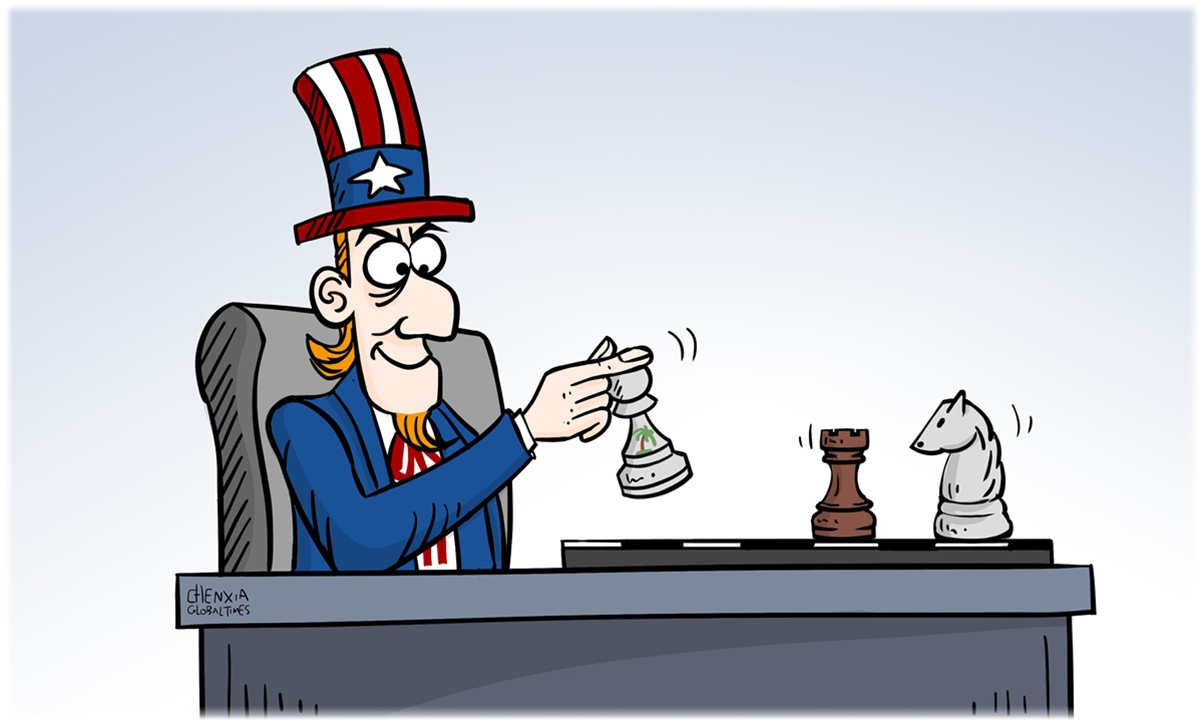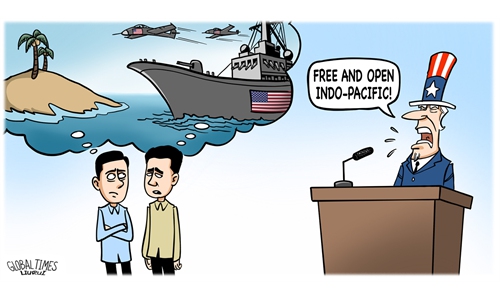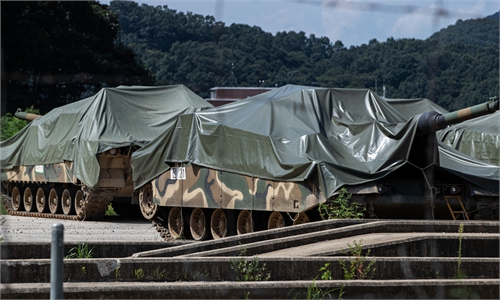US in no position to call itself ‘defender of freedom and openness’ in Indo-Pacific

Asia-Pacific Illustration: Chen Xia/GT
"Free and open Indo-Pacific" has become one of the favorite clichés Washington would like to use in recent years.
However, the actual actions of the US reflect that it pursues the absence of freedom and openness when it comes to China - an important part of the Indo-Pacific region - since the US is trying to contain China and exclude it from regional affairs in every possible way.
On Thursday, US National Security Advisor Jake Sullivan held trilateral talks with his Japanese and South Korean counterparts in Hawaii. After the meeting, he plans to visit the US Indo-Pacific Command to discuss the country's alliances "in defense of the free and open Indo-Pacific," according to a White House statement on Tuesday.
This is the first high-level security talks among the three countries since South Korean President Yoon Suk-yeol took office. And when the US talked about "free and open Indo-Pacific" once again, it is clear that it's just another day for US officials to target China.
After US house speaker Nancy Pelosi's provocative visit to the island of Taiwan, Washington expected its allies in Northeast Asia - Seoul and Tokyo - to keep up with its pace on how to deal with a new status quo in the Taiwan Straits. But currently, both Japan and South Korea are still some distance away from the US. Tokyo has almost reached its anti-Beijing limits, with one further step across China's bottom line to get itself burned up. Meanwhile, although a US treaty ally, South Korea is unwilling to stand by the US over the Taiwan question, showing even more rationality than Japan has.
Lü Xiang, a research fellow at the Chinese Academy of Social Sciences, told the Global Times that in such a context, Washington apparently seeks to put more pressure on its Northeast Asian allies through the Thursday trilateral meeting. It also attempts to confirm if Tokyo and Seoul genuinely want to be a part of its confrontation campaign against China, because if so, they should step up their anti-China game.
"Free and open Indo-Pacific" has long been a pretext the US exploited to bring in allies to contain China. But what is considered "free and open" can be defined only by the US. Based on this principle, only those that meet Washington's interests are "free and open," and those that are not should be prepared to meet suppression from the US.
In fact, some cooperation among the US, Japan, and South Korea has threatened a "free and open Indo-Pacific." This includes the mechanism of intelligence gathering and sharing Washington has been promoting, and trilateral military exercises such as the recent one taking place near Hawaii weeks ago. These activities could certainly disrupt regional order and security.
Moreover, the US is planning a preliminary meeting this month for the so-called Chip 4 alliance to block the development of Chinese semiconductors, with the anticipated participation of Japan and South Korea. Such a partnership obviously intends to create a China-excluded clique, which, together with other US-led coteries in this region including the Indo-Pacific Economic Framework, completely counters Washington's pursuit of a "free and open Indo-Pacific," proving its definition full of hypocrisy and geopolitical calculations.
Many countries have actually realized that the US abused the idea of "freedom and openness." Throughout history, Washington has even imposed severe sanctions on some of its allies without mercy. Yet most countries do not have the ability to confront the US. Nor do they dare to openly object to such an unjust action, as they may face more outrageous acts of revenge from Washington.
The US is in no position to call itself the "defender" of freedom and openness in the Indo-Pacific region. According to Lü, the US clamors to safeguard the regional order, but its true intention is to undermine China's development, which means it needs more strength to fulfill its evil goal. However, this is highly impossible, since the US is already struggling to maintain its current level of strength.
After US' recent series of provocations against China over the Taiwan question, the situation in the Taiwan Straits has become more likely to destabilize the regional situation.
At a time like this, Japan and South Korea need to make up their minds whether to continue engaging in US' ill-intentioned plans and make themselves China's enemies and targets for Chinese military actions, or to remain relatively neutral between the two great powers. They should also ask themselves: Is it really worth sacrificing their own interests and safety for a false "freedom and openness" that the US has been talking about?



